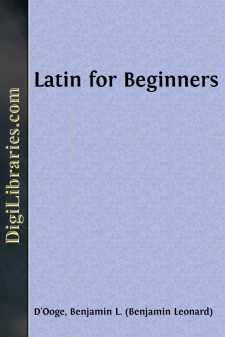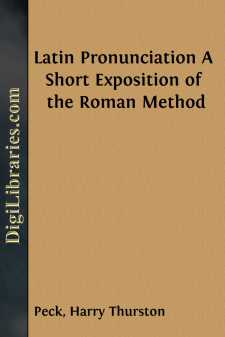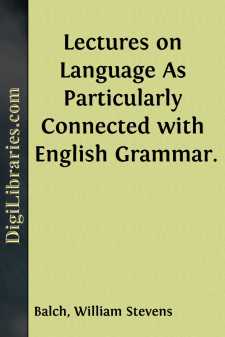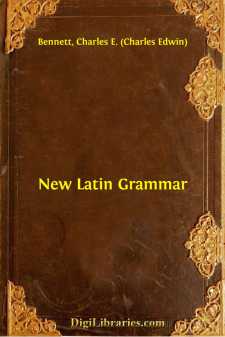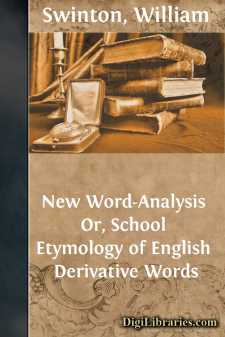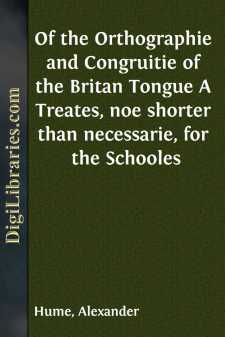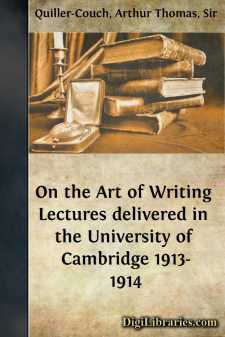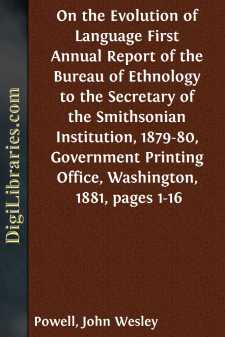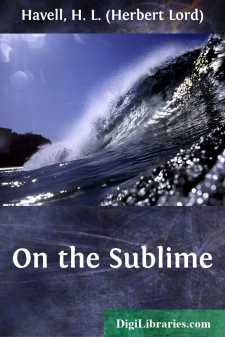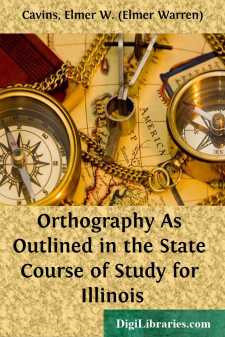Language Arts & Disciplines
Language Arts & Disciplines Books
Sort by:
LATIN FOR BEGINNERS TO THE STUDENT—BY WAY OF INTRODUCTION What is Latin? If you will look at the map of Italy on the opposite page, you will find near the middle of the peninsula and facing the west coast a district called Latium,1 and Rome its capital. The Latin language, meaning the language of Latium, was spoken by the ancient Romans and other inhabitants of Latium, and Latin was the name applied...
more...
INTRODUCTORY. THIS short manual is primarily intended for those who, being interested in the study of Latin, have accepted the Roman method of pronunciation upon the authority of the Grammars, but have either not been able to command the time to make themselves familiar with the arguments upon which this system is based, or have been repelled by the technicalities employed in treating the question from...
more...
LECTURE I. GENERAL VIEW OF LANGUAGE. Study of Language long considered difficult. — Its importance. — Errors in teaching. — Not understood by Teachers. — Attachment to old systems. — Improvement preferable. — The subject important. — Its advantages. — Principles laid down. — Orthography. — Etymology. — Syntax. — Prosody. Ladies and Gentlemen, It is proposed to commence, this...
more...
PART I. SOUNDS, ACCENT, QUANTITY. THE ALPHABET. 1. The Latin Alphabet is the same as the English, except that the Latin has no w. 1. K occurs only in Kalendae and a few other words; y and z were introduced from the Greek about 50 B.C., and occur only in foreign words—chiefly Greek. 2. With the Romans, who regularly employed only capitals, I served both as vowel and consonant; so also V. For us,...
more...
by:
William Swinton
PREFACE. The present text-book is a new-modeling and rewriting of Swinton's Word-Analysis, first published in 1871. It has grown out of a large amount of testimony to the effect that the older book, while valuable as a manual of methods, in the hands of teachers, is deficient in practice-work for pupils. This testimony dictated a double procedure: first, to retain the old methods; secondly, to add...
more...
by:
Alexander Hume
OF THE GROUNDES OF ORTHOGRAPHIE.Cap. 1. 1. To wryte orthographicallie ther are to be considered the symbol, the thing symbolized, and their congruence. Geve me leave, gentle reader, in a new art, to borrow termes incident to the purpose, quhilk, being defyned, wil further understanding. 2. The symbol, then, I cal the written letter, quhilk representes to the eie the sound that the mouth sould utter. 3....
more...
LECTURE I. INAUGURAL Wednesday, January 29, 1913 In all the long quarrel set between philosophy and poetry I know of nothing finer, as of nothing more pathetically hopeless, than Plato's return upon himself in his last dialogue 'The Laws.' There are who find that dialogue (left unrevised) insufferably dull, as no doubt it is without form and garrulous. But I think they will read it with...
more...
I.—THE PROCESS BY COMBINATION. Two or more words may be united to form a new one, or to perform the office of a new one, and four methods or stages of combination may be noted. a. By juxtaposition, where the two words are placed together and yet remain as distinct words. This method is illustrated in Chinese, where the words in the combination when taken alone seldom give a clew to their meaning when...
more...
INTRODUCTION TREATISE ON THE SUBLIME Boileau, in his introduction to his version of the ancient Treatise on the Sublime, says that he is making no valueless present to his age. Not valueless, to a generation which talks much about style and method in literature, should be this new rendering of the noble fragment, long attributed to Longinus, the Greek tutor and political adviser of Zenobia. There is,...
more...
INTRODUCTIONBY DR. EDWIN C. HEWETT. I have long thought that the careful, discriminating study of words is much neglected in our schools. And I am glad to approve, and help to forward, anything that will promote such a study. Not only will such a study improve a person's language greatly, but it will, at the same time, do much to improve the clearness and precision of his thinking; thought and...
more...


